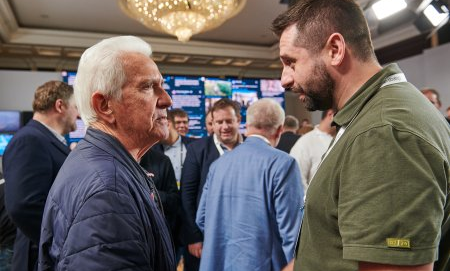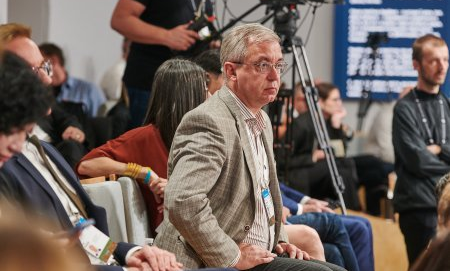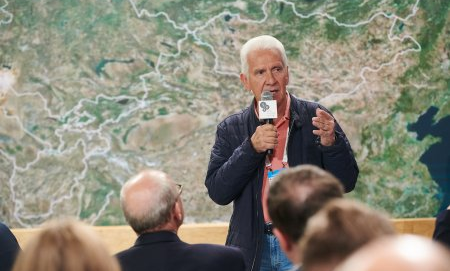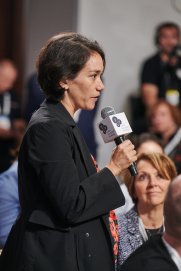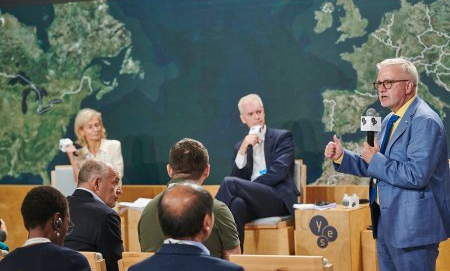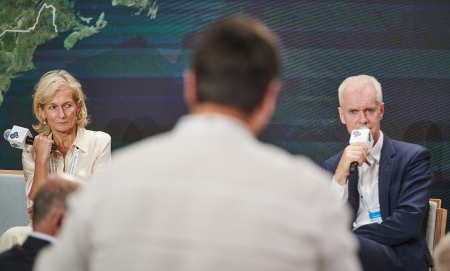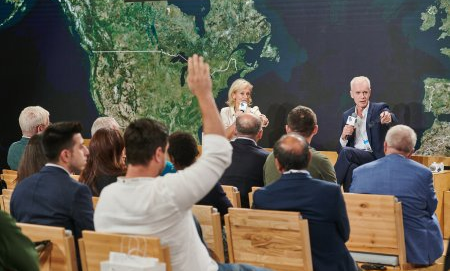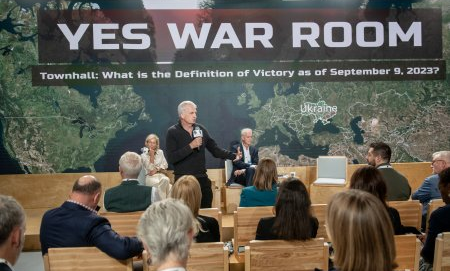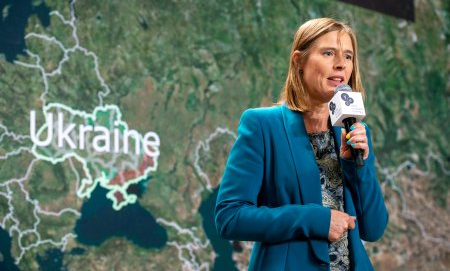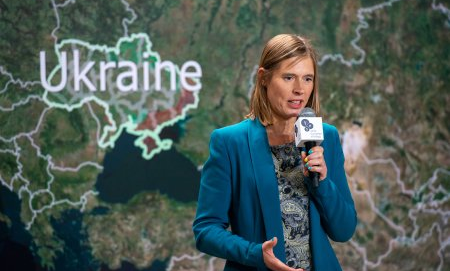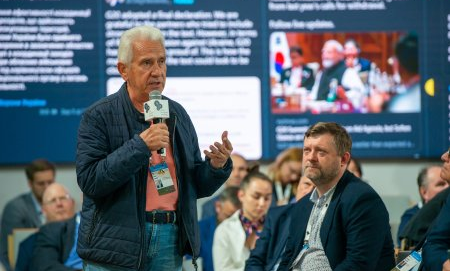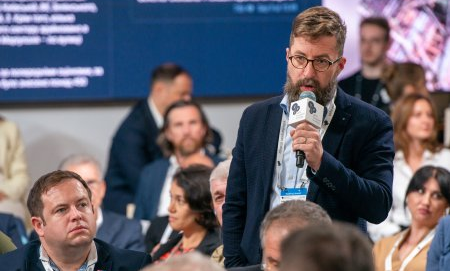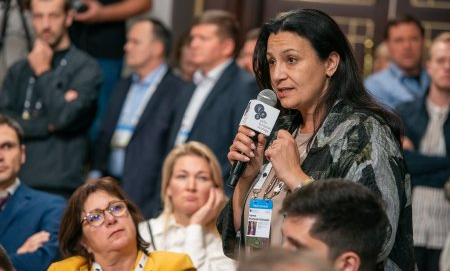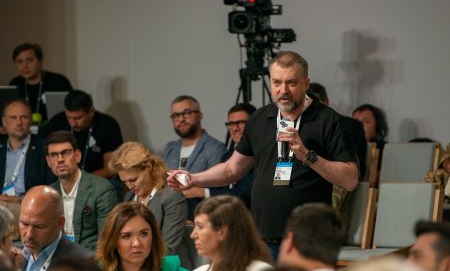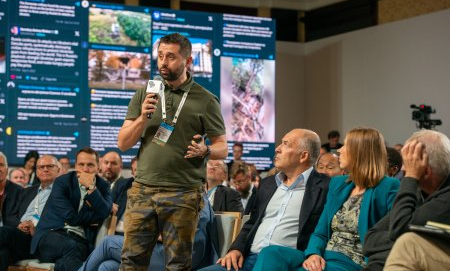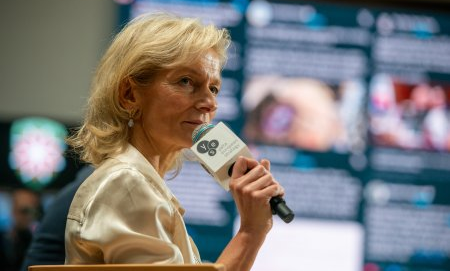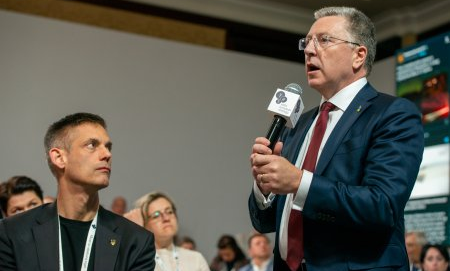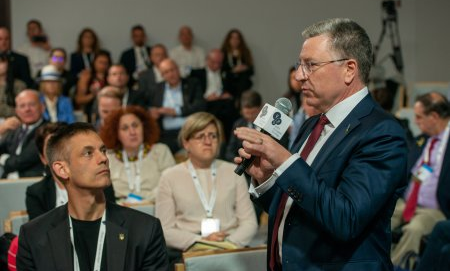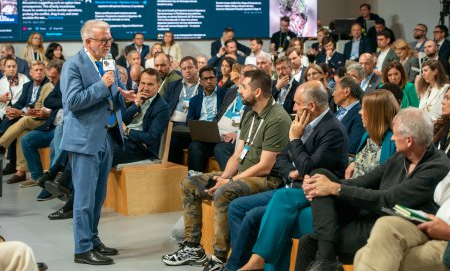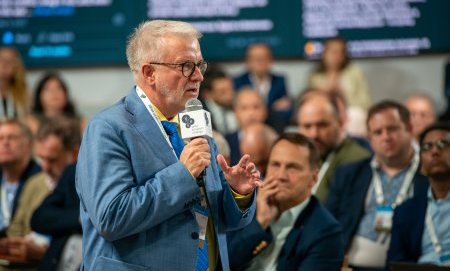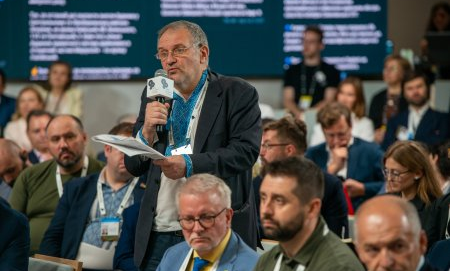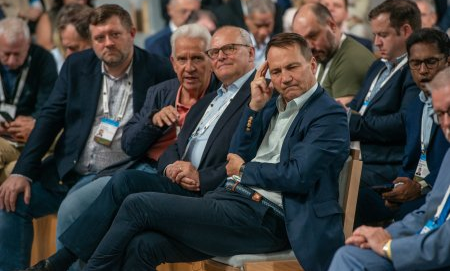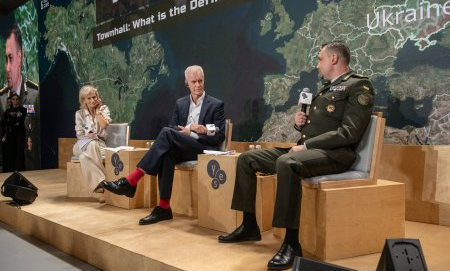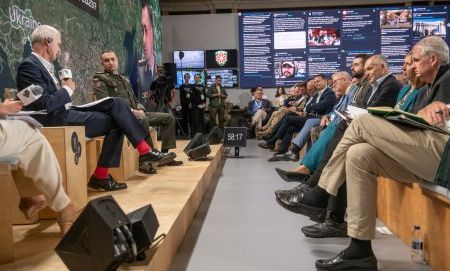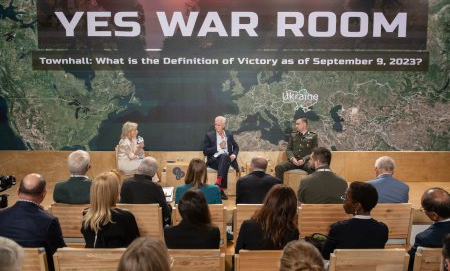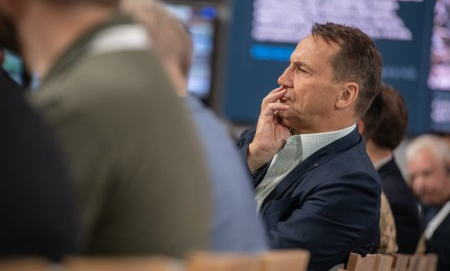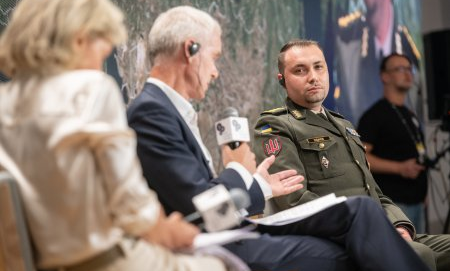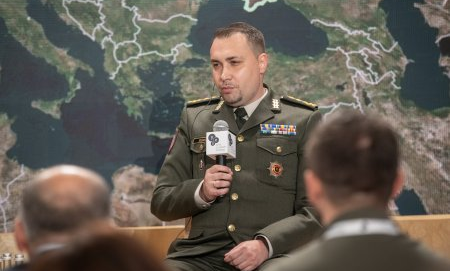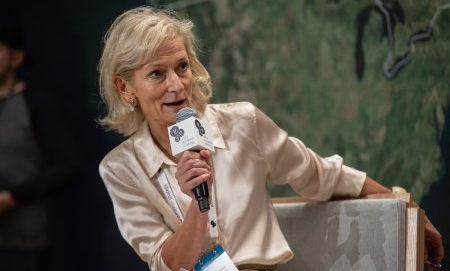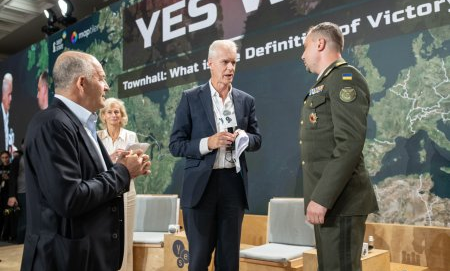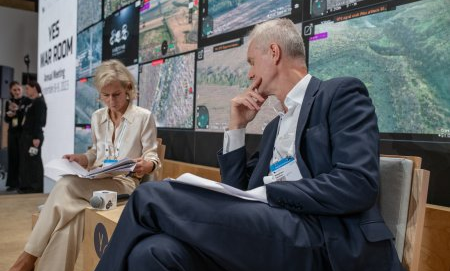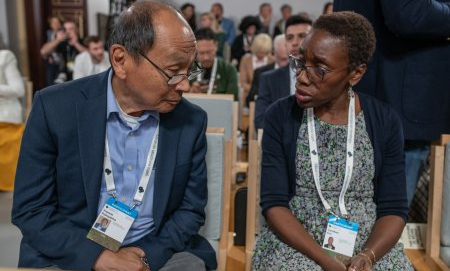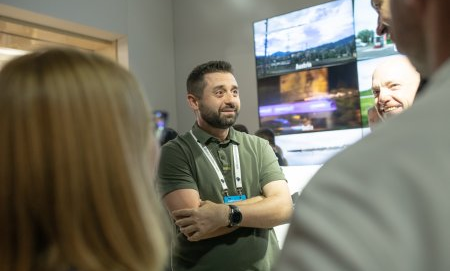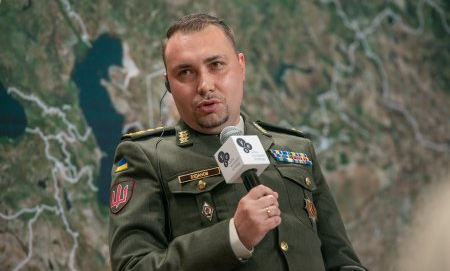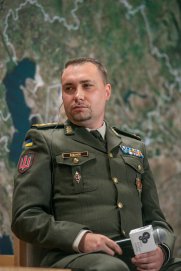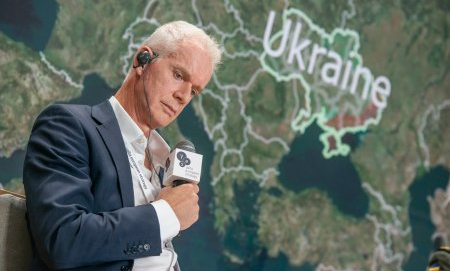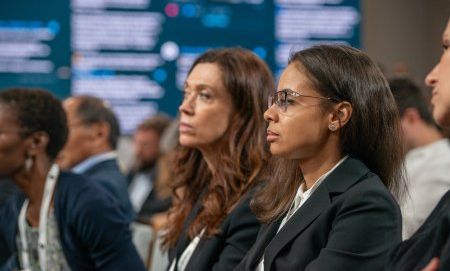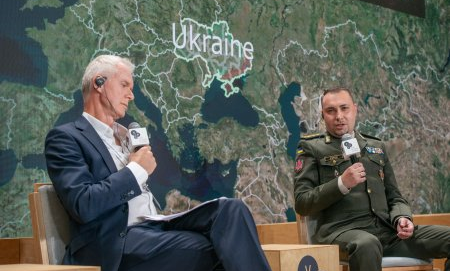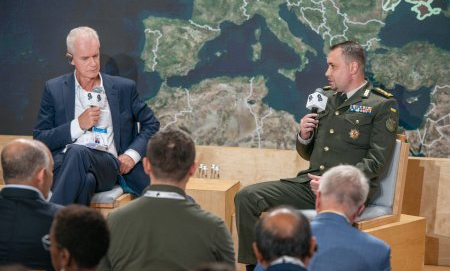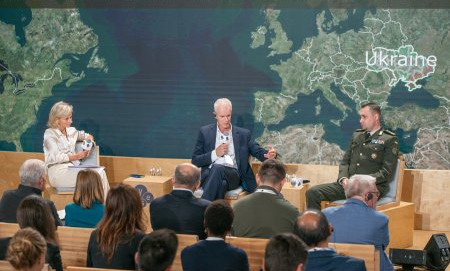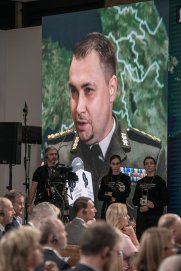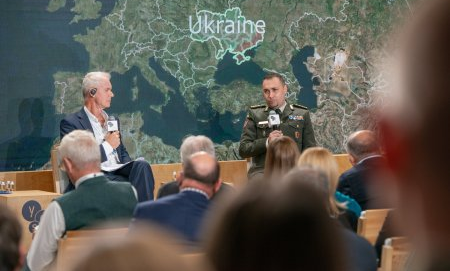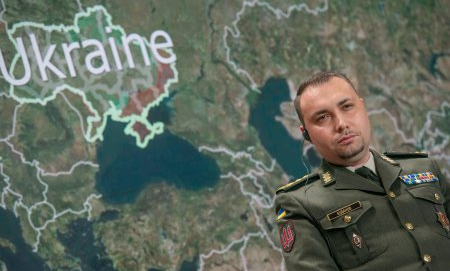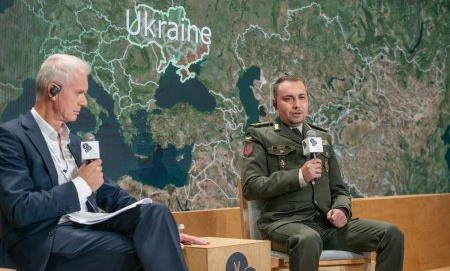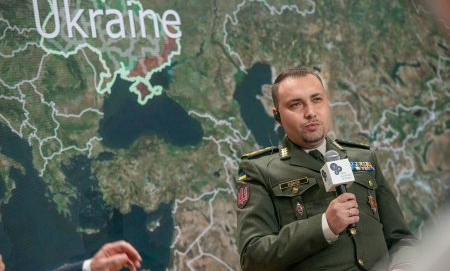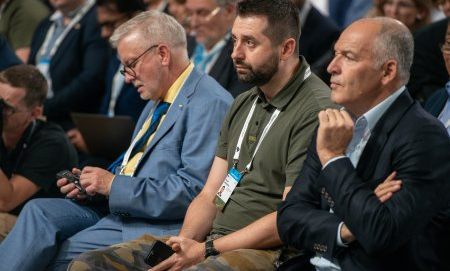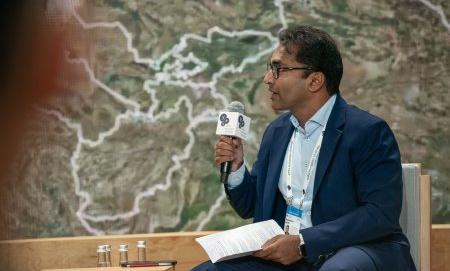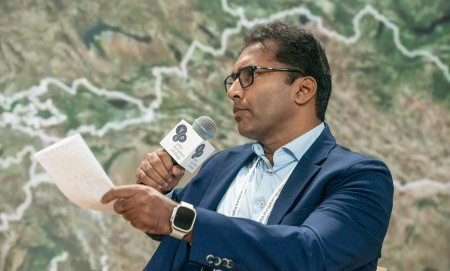Yalta European Strategy: NEWS
14th YES Annual Meeting: the headlines from day two
Prime Minister, Volodymyr Groysman, former UK Prime Minister, Tony Blair and former Ukrainian President, Leonid Kuchma, headline day two
Kyiv, Ukraine, 16th September 2017: The second day of the 14th Yalta European Strategy Annual Meeting saw a number of speakers promote the need for peace and cooperation in Europe while continuing reforms across Ukraine in the face of threats posed by Russia in the east of the country.
Ukrainian Prime Minister, Volodymyr Groysman opened the day’s speeches noting that Ukraine had been faced with unprecedented problems in recent years but has still managed to achieve macro-economic stability, an achievement that should be celebrated. However, he warned that Ukraine was making up for lost time. “We’ve had several opportunities to overcome these challenges but the last 10 years have been years of lost opportunity. Had we made changes [earlier] we would be in a very different situation now”, Groysman confessed.
Groysman went on to talk of unity and progress in Ukraine, saying “I think today, we should all be united: President, Prime Minister, Parliament. We have to show the people we are capable of change”.
When asked about corruption in Ukraine, Groysman admitted there was still more work to do. “I believe that we must quickly set up an instrument that enables the prosecution of corrupt officials. Whatever we name it – the Anticorruption Chamber or Anticorruption Court – is not important. What is important is to quickly set up a body which will be completely independent," the Prime Minister said.
Following the Prime Minister on stage was Sir Alan Duncan, Minister of State for Europe and the Americas at the Foreign and Commonwealth Office of the United Kingdom, who cautioned against blindly accepting Russia’s proposals. “It is very important not to be trapped. Russia's proposals to the UN seem attractive, however, they may simply aim to freeze the sanctions rather than restoring the rule of international law. We must be very careful about that.”
The 14th Annual Meeting then paid tribute to the life of Shimon Peres, the former President and Prime Minister of Israel who passed away last year. Speaking at the first ‘Shimon Peres Peace Lecture’, former UK Prime Minister, Tony Blair, spoke of the long and difficult journey peace talks often take, warning that peace can only take place if both parties are willing.
"When you look at the resolutions submitted by Russia to the UN, it is important to understand whether they come from a partner who seeks reconciliation or are a tactical manoeuvre?” he cautioned. “Partnership needs to have strategic depth in order to last", he continued.
Optimism regarding Ukraine’s progress and ambitions were tempered by Wolfgang Ischinger, chairman of the Munich Security Conference, Professor at the Hertie School of Governance in Berlin and member of the YES Board. “I cannot see any possibility on the horizon for all NATO members to vote in favour of Ukraine's membership. There is no chance of this happening while there is gunfire in your country. Certainly, the key problem is the conflict which would have prompted many NATO members to say: if we accept Ukraine, we also inherit the problems with Russia," he concluded.
Again, Crimea was a topic of conversation on the panels with a number of representatives of foreign states pledging support to Ukraine. Congressman Will Hurd, Member of the U.S House of Representatives, said “Crimea is not a separatist issue. It is an invasion of a sovereign country by Russia. Russia is not an ally, it is an adversary. There aren’t too many things congress can agree on but support for Ukraine is one of them. The question now is, what can we do to help?” Unites States Special Representative for Ukraine Negotiations, Kurt Volker, echoed Mr Hurd’s sentiments in the following panel, and said “Russia has decided to do these things, and it is my job to try and change their decisions.”
The Annual Summit came to a close with Yuri Lutsenko, Prosecutor General of Ukraine pledging support for the creation of an Anti-Corruption Chamber this year and an Anti-Corruption Court next year before giving way for Victor Pinchuk, Founder and Member of the Board, Yalta European Strategy, to moderate a summary panel with the three moderators of the summit: Richard Haas, President, Council of Foreign Relations, Stephen Sackur, Presenter, BBC World News, and Fareed Zakaria, host, CNN.
Aleksander Kwasniewski, former President of Poland and Chairman of the YES Board, closed the 14th Annual Summit with remarks on the need to prepare for the unprecedented speed of change in technology and science before remarking on the huge potential Ukraine would have in the European Union. Kwasniewski concluded with “peace is more difficult than war” before echoing Pinchuk’s opening remark: “one day we will again organise this annual meeting in Yalta”.
For us, Ukraine is a good partner, hence the opinion that it should become a European member and join this organization [European Union]
Aleksander Kwasniewski, President of the Republic of Poland (1995-2005)
"Europeans are confused. They have certain phobias which have grown in strength and prevent them from forming a single opinion. They are not overly optimistic about their future
Oleksandr Danyliuk, Finance Minister of Ukraine
“For us, democracy is very important and a very real concept, while Russia cannot do without an autocratic system like the one built up by Putin”
Pavlo Klimkin, Minister of Foreign Affairs of Ukraine


